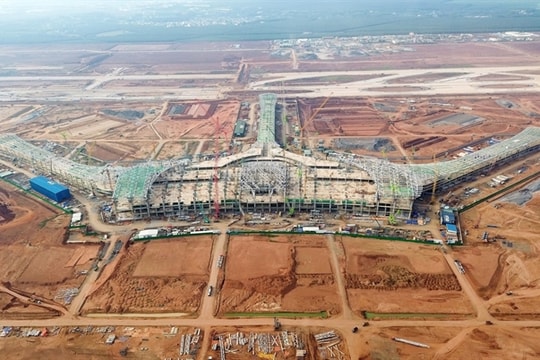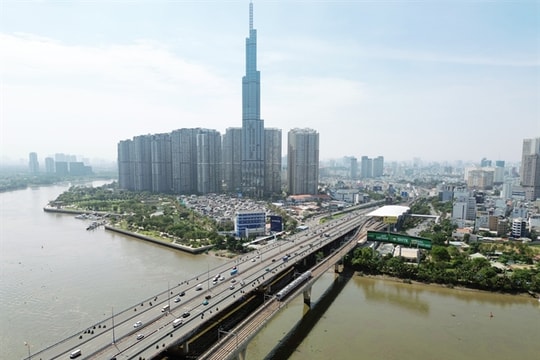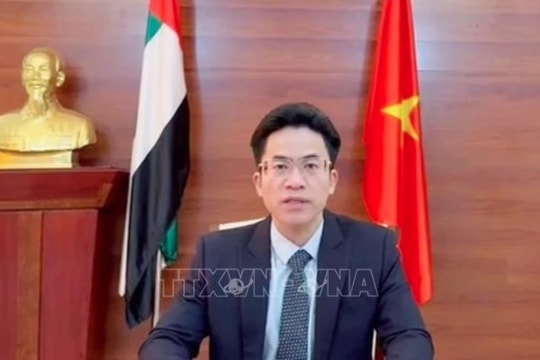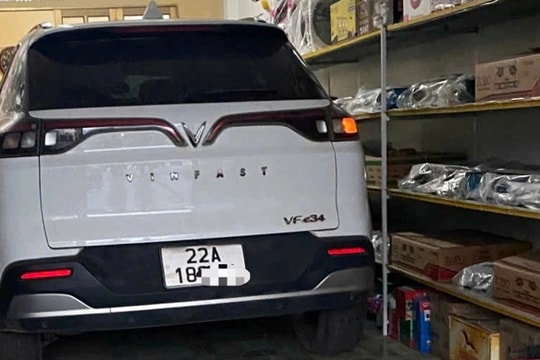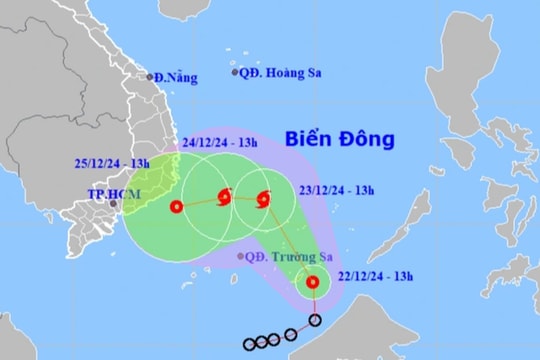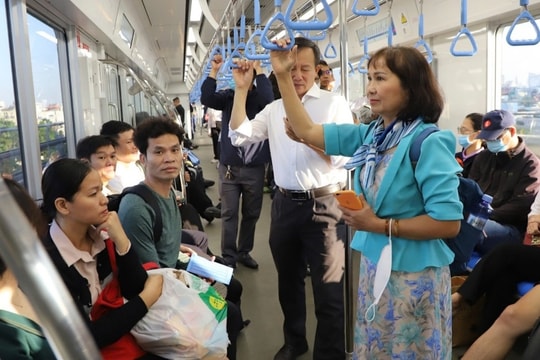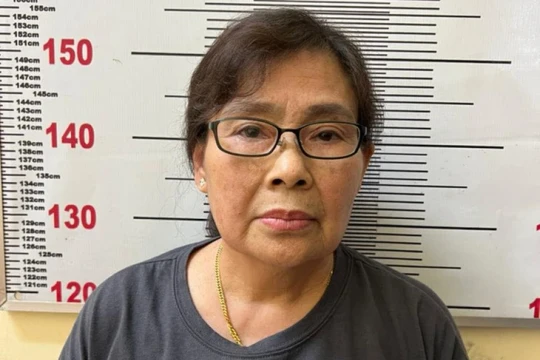Digitalisation helps increase efficiency in crop management
With the rapid development of digital technology, transformation of the agriculture sector in general and farming in particular is possible. Lê Thanh Tùng, said deputy director of the Department of Crop Production (Ministry of Agriculture and Rural Development).
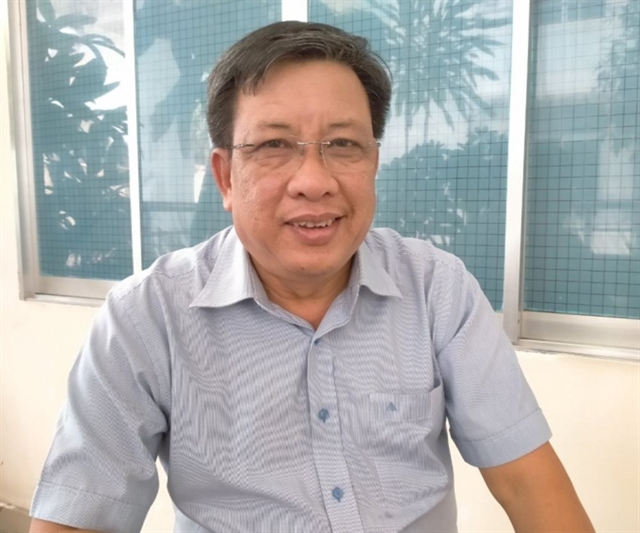 |
| Lê Thanh Tùng, deputy director of the Department of Crop Production. VNS Photo Tố Như |
With the rapid development of digital technology, transformation of the agriculture sector in general and farming in particular is possible. Lê Thanh Tùng, deputy director of the Department of Crop Production (Ministry of Agriculture and Rural Development) talked about the possibilities with reporter Tố Như.
What are the significance of digital tools in terms of managing crops in general and the rice industry in particular?
Crop production, particularly growing rice, needs large spaces and a long growing cycle. For example, normal crops take about one month, rice takes about three months and many other crops even longer.
Because of this all kinds of external factors such as weather, climate, water source and light will greatly affect plants, productivity and thereby people's livelihoods.
We still have normal management tools, however relying on awareness and experience of local experts may be suitable in one area but may not be suitable for other regions.
If we keep managing in the old ways, we can only handle individual problems as they arise, we do not have any robust prediction and prevention models.
Therefore, digitalisation in the field of farming in general and in rice production will help us have common tools, a common approach to make specific decisions for specific areas with specific conditions or for a certain production or raw material area, thereby minimising damage and increasing productivity.
Digitalisation in the agricultural sector in general and cultivation in particular is essential, especially in the rice sector when we have an output of about 43 million tonnes per year, of which around eight million tonnes is exported.
Regarding the RiceMoRe application that has been deployed since 2018 in ten provinces and cities nationwide, how effective has it been so far?
The farming sector has made significant progress in building a digital data ecosystem in rice production management, greatly contributing to the comprehensive digital transformation of the agricultural industry.
The RiceMoRe (Rice Production Monitoring and Reporting System) application which is jointly developed by the Department of Crop Production, the Centre for Digital Transformation and Agricultural Statistics and the International Rice Research Institute (IRRI), is a pioneering example of this effort.
RiceMoRe is a tool to accurately measure and calculate factors which will impact productivity. This will greatly support officials from the commune, district and provincial levels so that they can get helpful advice and make very specific decisions at that time.
When officials collect information, instead of writing reports, sitting in meetings and making comments, they have a set of tools available and make decisions with an input data set and predict product output.
Notably, with the current situation when we are moving towards producing rice with higher quality, lower emissions and green growth, the RiceMoRe tool will be very helpful in making calculations for experts.
The Mekong (Cửu Long) Delta is a key region for rice production and it has been very active in implementing this tool since 2018, when the network of local professional staff started to fall. Our system of specialised managers is increasingly shrinking, as digital tools like this take over.
Could you give us more specific details?
Before having the RiceMoRe tool, we did not know how much farmers had reduced the amount of seed, irrigation water and fertiliser they had used during production. But when applying the tool, we can measure the efficiency of use and production according to farmers’ processes to make recommendations so that people can reduce costs by about 10 – 15 per cent.
However, the most important thing is that if people follow the production protocol they will also help reduce greenhouse gas emissions in rice production.
So the RiceMoRe application is meaningful in the current climate change context, as well as aiming towards clean, green production. But how will this apply to the one million hectares of high-quality specialised rice in the Mekong Delta?
One million hectares of high-quality rice also means one million households or one million fields or maybe more.
We cannot measure each field manually because we do not have enough human resources, methods and tools.
The Ministry of Agriculture and Rural Development sees RiceMoRe as a tool to calculate a high-quality production process and reduce costs.
Regarding low emissions, if we follow RiceMoRe's process and track it correctly, the data will tell us how much emissions have been reduced.
And when we do all of these things, we will reduce factors that impact the environment, contributing to green growth.
I think that with a calculation tool like this, with digitalisation like this, it will be easier for us to scale up from a few dozen hectares to one million hectares as the project requires.
How do you evaluate the expansion of this model?
We have high hopes for this development and already the Department of Crop Production and IRRI found it effective. We reported back and invited the digital transformation centre of the Ministry of Agriculture and Rural Development to work together on it.
Inclusion in a development programme of the Ministry of Agriculture and Rural Development will synchronise the general digital transformation programme for the ministry's agencies, as well as agencies across the country.
The sustainable agricultural and rural development strategy for the period 2021 - 2030, with a vision to 2050, emphasises the role of science, technology and innovation to move towards ecological agriculture and modern rural areas and civilised farmers.
In particular, digital transformation will bring opportunities to enhance value, improve sustainability in production and diversify livelihoods for farmers.
The ministry has actively promoted digital transformation in the agricultural sector with ambitious goals, especially the development of an open-data platform with high quality and exploitation value. VNS





